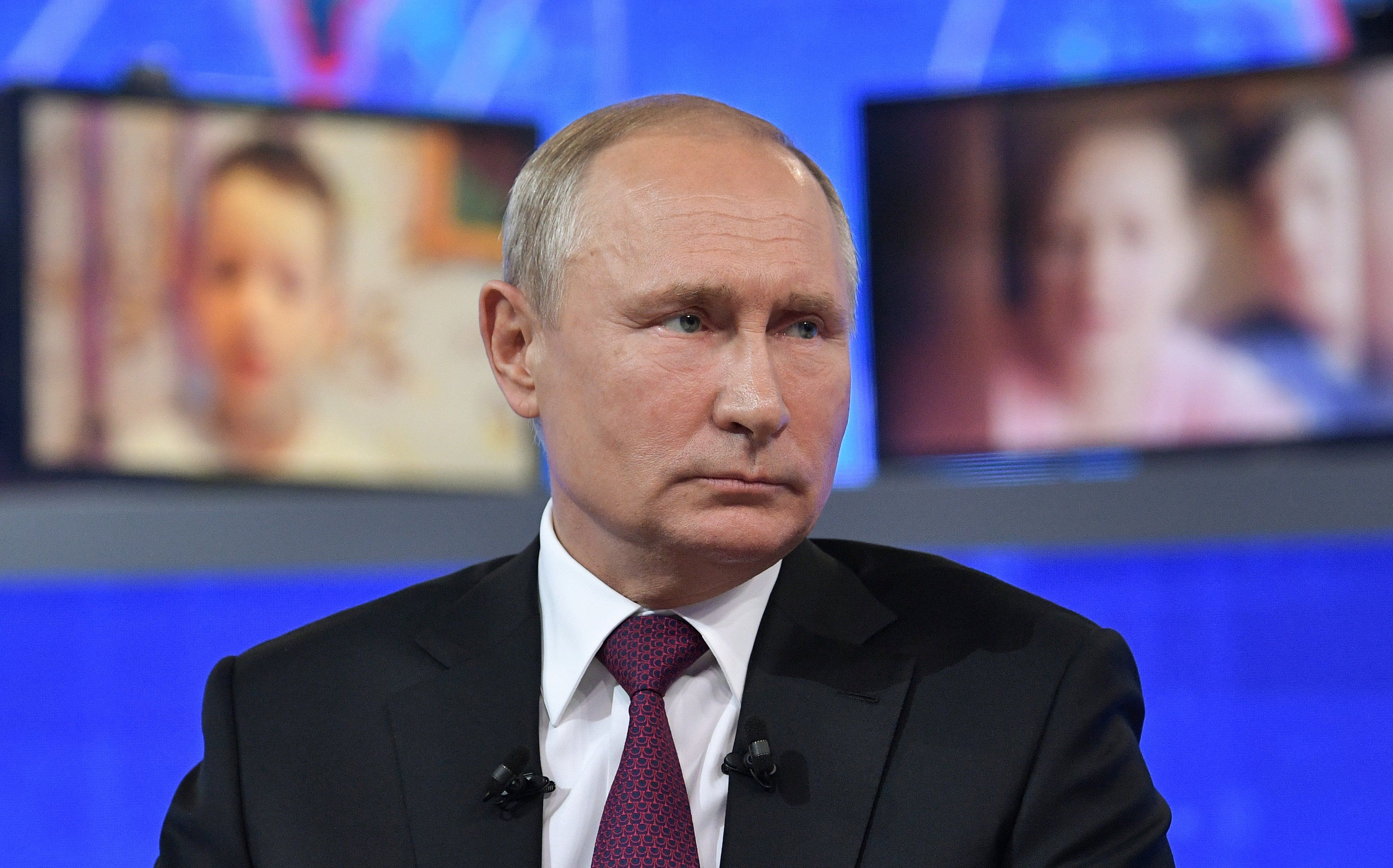June 14, 2023
On Tuesday, Russia’s President Vladimir Putin fielded questions from 18 carefully selected Russian milbloggers and war correspondents during a televised event. The occasion was interesting for several reasons. Putin took the unusual (for him) step of wading into the increasingly ugly battle of words between Yevgeny Prigozhin, head of the Wagner Group private militia, and Russian Defense Minister Sergei Shoigu.
The Russian president backed Shoigu’s call for all fighters now working for the many militia groups fighting for Russia inside Ukraine to sign contracts that bring them under the direct control of the Defense Ministry. Putin also claimed Russian forces will win the war by outlasting Western support for Ukraine, that Russia can defend its borders against future Ukrainian raids and drone attacks inside Russia, that Russian forces have effectively repelled Ukraine’s counteroffensive, and that no further conscription and mobilization of Russian soldiers will be necessary for the foreseeable future.
The message for ordinary Russians, especially for critics who say Russia isn’t aggressive enough in Ukraine: I’m in charge, and we’re winning, so don’t worry about it.
Is Putin genuinely confident? Or is this an effort to build much-needed unity in a moment of high Russian anxiety as Ukraine’s counteroffensive gathers momentum? The next move from Prigozhin, now on a speaking tour inside Russia, will also be important to watch. The war’s most colorful character looks to be standing on increasingly dangerous ground.
More For You
Mastercard Economic Institute's Outlook 2026 explores the forces redefining global business. Tariffs, technology, and transformation define an adaptive economy for the year ahead. Expect moderate growth amid easing inflation, evolving fiscal policies, and rapid AI adoption, driving productivity. Digital transformation for SMEs and shifts in trade and consumer behavior will shape strategies worldwide. Stay ahead with insights to help navigate complexity and seize emerging opportunities. Learn more here.
Most Popular
Think you know what's going on around the world? Here's your chance to prove it.
President Donald Trump delivers an address to the nation from the Diplomatic Reception Room of the White House, in Washington, D.C., U.S. Wednesday, Dec. 17, 2025.
Doug Mills/Pool via REUTERS
Less than one day after US President Donald Trump declared a military blockade of sanctioned oil tankers from Venezuela, he addressed the nation during a rare primetime speech – but didn’t talk about Venezuela.
Indian Prime Minister Narendra Modi isn’t necessarily known as the greatest friend of Muslim people, yet his own government is now seeking to build bridges with Afghanistan’s Islamist leaders, the Taliban.
© 2025 GZERO Media. All Rights Reserved | A Eurasia Group media company.
